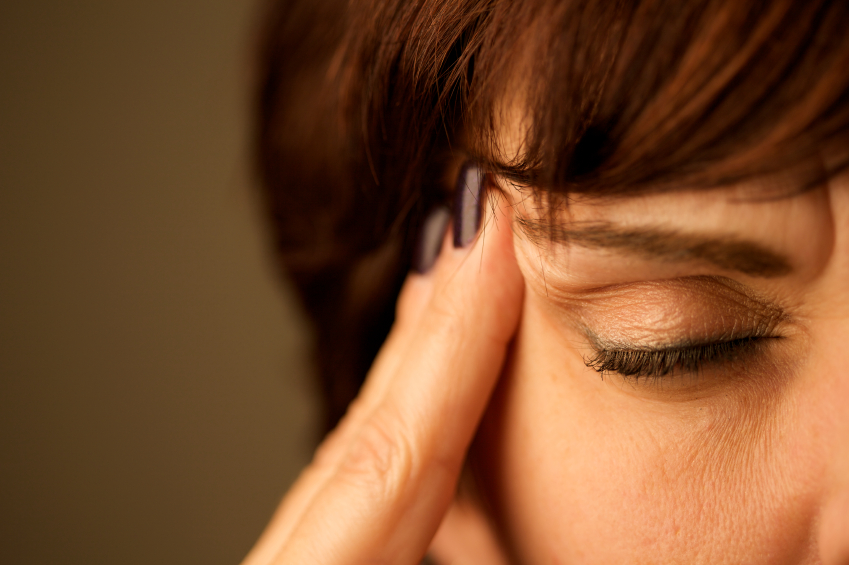Natural headache remedies

Headaches are a common health complaint affecting most of us at one stage in our lives, and they can be both debilitating and stressful. Here are some tips on how to identify your type of headache and prevent it from ruining your day…
According to Shona Wilkinson, head nutritionist at nutricentre.com, there are three headache categories:
• Tension headaches: The most common type of headache. Episodes can be acute or chronic (regular) and can last between minutes to weeks. Symptoms include a throbbing sensation, ie experiencing a constant ache at the temples or back of the neck and head. In contrast to migraines, tension headaches do not cause nausea or vomiting or affect physical activity.
• Cluster headaches: A rare and severe type of headache affecting primarily one side of the head, which often comes with other symptoms such as watery eyes and a congested nose. These headaches can occur in clusters for a month or two at a time, at the same time each day. These may last from 15 minutes to 3 hours.
• Migraine headaches: Less common than tension headaches. The pain is severe, achy and occurs on the side or front of the head. Sufferers can have a sensitivity to light and sound, or experience nausea and vomiting. Since they can last for hours they can cause us to favour our beds for days.
Better safe than sorry: how to prevent headaches
• Lower alcohol intake. “It causes dehydration and affects not only our mood but also our quality of sleep,” explains Shona.
• Stay hydrated with herbal teas, water and coconut water. “Your body is made up of approximately 70 per cent water and this is involved in every bodily process, including blood circulation,” explains Dr Marilyn Glenville, the UK’s leading nutritionist (marilynglenville.com) and author of The Natural Health Bible for Women.
• Keep your sugar levels at bay. “Women in particular going through the phases of the menstrual cycle or changes in their lives (pregnancy or menopause) seem to experience a higher recurrence of headaches. To balance your hormones eat at regular hours, include lots of protein and wholegrains, and limit your sugar intake to prevent sugar highs and lows,” suggests Dr Glenville.
• Manage stress with breathing techniques that may work for you. Shona says, “Aim to find what helps to relax you, be it soothing music, a bath with essential oils, or a quiet evening at home.”
• Practise Pilates. Lynne Robinson, founder of Body Control Pilates (bodycontrolpilates.com) and author of Pilates For Life explains, “As you focus on controlling your alignment, breathing and centring, there’s no time to worry about anything else; your mind clears! This can be enormously beneficial if you suffer from headaches caused by tension and stress. The trick then is to take what you’ve learnt in your class and use it whenever you feel a headache coming on. A few moments of deep breathing can do wonders.”
• Take time to move away from your desk and take a breath of fresh air. “Sometimes pollution in the air from dust, chemicals and mould can trigger headaches. Take a walk outside whenever you can,” suggests Shona.
• Sleep more! “Migraines may keep you from falling asleep or wake you up at night. Likewise, migraines are often caused by a poor night’s sleep,” explains nutritionist Cassandra Barns.
3 of the best headache busters
Magnesium
“This important mineral supports the normal functioning of the nervous system. Studies have also shown that some headache sufferers have low magnesium levels. Try taking Synergistic Magnesium (revital.co.uk, £10.45) every day,” says Cassandra.
B2 vitamin
B vitamins help to support the nervous system – B2 (Riboflavin) in particular. They can help to provide a reduction in the severity and frequency of certain headaches. “Riboflavin, also known as vitamin B2, is found in small amounts in many foods. It is needed for converting food to energy, and, like CoQ10, also works as an antioxidant by mopping up the damaging free radicals. Try including lean meats, eggs, legumes, nuts, green leafy vegetables and dairy products in your diet. You can also go for a supplement such as Nature’s Plus Source of Life Gold Gummies (revital.co.uk, £28.50),” recommends Cassandra.
Choline
Research has suggested that low levels of choline – which we can find in eggs, seafood, broccoli and spinach – can cause cluster headaches. Cassandra explains, “Choline is an essential nutrient for normal function of all cells. It is found in substances called phospholipids that are a vital part of our cell membranes, including our brain and nerve cells. Phospholipids are necessary for cell structure and cell signalling. Go for a ready formula with vitamins B6, B12 and DHA, such as Mastermind (reviveactive.com, £37.50).”

Leave a Reply
Please login or register to leave a comment.